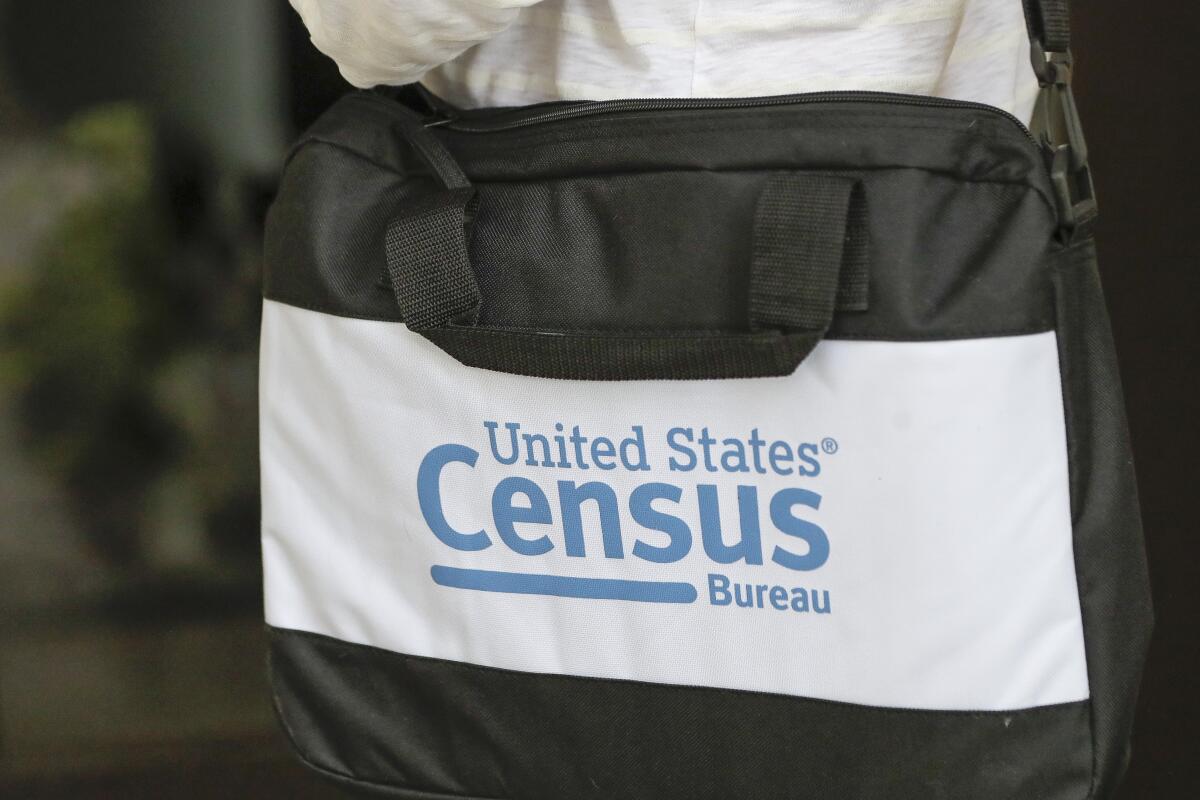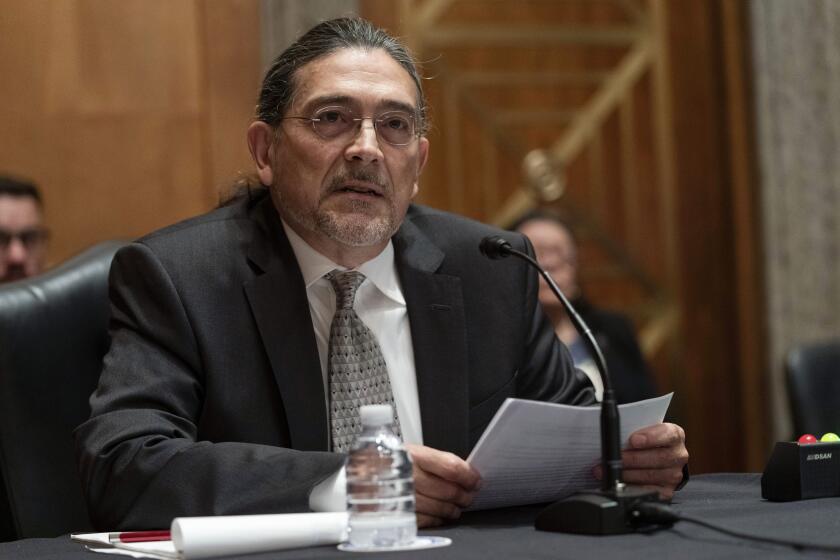House passes a bill that would help keep politics out of the census

- Share via
WASHINGTON — The House passed legislation Thursday intended to make it harder for presidents to interfere with the once-a-decade census that helps allocate political power and federal funding, a move that comes in response to the Trump administration’s failed effort to make a citizenship question part of the 2020 headcount.
The legislation was approved 220 to 208, with only Democratic lawmakers voting for it. The bill would require that the Commerce secretary certify to Congress that any new question proposed for the census has been adequately studied and tested, and that the Government Accountability Office conduct a review of the certification.
The measure also seeks to limit political influence by mandating that a U.S. Census Bureau director can be fired only in cases of neglect of duty or malfeasance in office. It would vest the director with all technical, operational and statistical decisions, and would require that a deputy director be a career staffer with experience in demographics, statistics or related fields.
“Partisan manipulation of the census is simply wrong,” said Rep. Carolyn B. Maloney (D-N.Y.), who chairs the Committee on Oversight and Reform, which investigated the Trump administration’s efforts to add the citizenship question. “My bill would protect the census and ensure this cannot happen again regardless of which party is in power.”
Republicans unanimously opposed the bill, saying it reduces accountability by placing more power in the hands of unelected bureaucrats.
Rep. James Comer (R-Ky.) said that the changes are designed to make it easier for future census results to favor Democratic-leaning states over Republican-leaning states, by making it harder to overrule the director even when the president or Congress is concerned about decisions they believe will yield an unfair or inaccurate count.
Given the partisan divide over the bill, it faces an uphill climb in the evenly divided Senate. But “clearly we will take a very serious look at it,” said Sen. Gary Peters of Michigan, the Democratic chairman of the Senate Homeland Security and Governmental Affairs Committee.
Policymakers and demographers ask if it’s time to rethink the census after results show Black, Latino and American Indian residents were undercounted.
The census determines how many congressional seats each state gets and the distribution of $1.5 trillion in federal spending each year. Its results are also used for redrawing political districts.
The 2020 census was one of the most challenging in recent memory because of the attempts at political interference, the COVID-19 pandemic and natural disasters.
In the years leading up to the 2020 census, the Trump administration unsuccessfully tried to add a citizenship question — a move that many feared would scare off Latinos and immigrants from participating, whether they were in the country legally or not. The Supreme Court blocked the question.
The Trump administration also unsuccessfully tried to get the Census Bureau to exclude people in the country illegally from the apportionment numbers — the population figures used to divvy up congressional seats among the states.
The administration also tried to end data collection and processing earlier than the revised schedule that the Census Bureau created in response to the pandemic. Critics saw the administration’s move as an attempt to have the apportionment numbers released while President Trump was still in office.
The apportionment numbers were released in April 2021, over three months after President Biden replaced Trump in the White House.
Critics claimed the citizenship question was inspired by a Republican redistricting expert who believed that redrawing congressional and legislative districts using the population of citizens of voting age instead of the total population could be advantageous to Republicans and non-Hispanic white people.
Even though many of the Trump administration’s moves to change the census failed, some advocates believe the efforts still had an impact, leading to significantly larger undercounts of most racial and ethnic minorities in the 2020 census compared with the 2010 census.
The Black population in the 2020 census had a net undercount of 3.3%, while it was almost 5% for Hispanics and 5.6% for American Indians living on reservations and for Alaska Natives. Those identifying as some other race had a net undercount of 4.3%.
With the legislation, “we are reaffirming our commitment that every person in every community is counted,” said Rep. Judy Chu (D-Monterey Park), chair of the Congressional Asian Pacific American Caucus.
More to Read
Sign up for Essential California
The most important California stories and recommendations in your inbox every morning.
You may occasionally receive promotional content from the Los Angeles Times.














